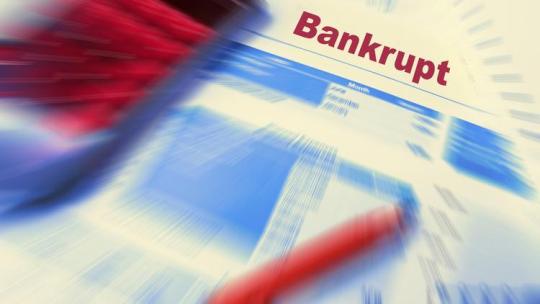Although most business owners do everything possible to avoid the need to file for bankruptcy, sometimes it is a necessary choice that must be made. What happens when a business files for bankruptcy varies depending on the chapter of bankruptcy that the company files. Because each chapter is designed for a specific type of business, the result of a bankruptcy filing is dependent on the type of business that has been declared as bankrupt.
Personal Bankruptcy
A sole proprietorship, such a small business or personal service run by one individual, is viewed as being an extension of the owner. Therefore, a sole proprietor wishing to file for bankruptcy would do so under Chapter 7. In this case, a bankruptcy trustee is appointed who will gather all of the business owner’s property and assets which are then sold in order to pay the company’s creditors.
Once all available assets have been sold, the bankruptcy court will then discharge any remaining debts that have not been paid. A sole proprietor may also file for Chapter 13 bankruptcy, where a court approved repayment plan is arranged between the business owner and their creditors. The business owner will be able to keep all of their assets, and instead make monthly payments to a bankruptcy trustee who will them distribute these payments between the creditors.
Business Bankruptcy
A business which is organized as a partnership, corporation, or a limited liability company is viewed as being entirely separate from its owners. Therefore, such businesses are unable to file for personal bankruptcy, although it is possible for a corporation or other large business to file for Chapter 7. However, under Chapter 7, a company which functions entirely separate from its owners will not receive a discharge of debts, as in personal bankruptcy. Instead, under Chapter 7, once all assets have been sold, the company will cease to exist.
Chapter 11
Once a business has opened a Chapter 11 case by filing a petition for bankruptcy, an automatic stay will come into effect. The company must then disclose its financial situation to the court in the form of a written disclosure statement and a reorganization plan, in return for the protection that has been given. The statement given by the company must include detailed information about any assets belonging to the company, along with information about business affairs and any known liabilities. The information provided by the company then allows creditors to make informed decision about the reorganization plan, along with any repayment plans that have been proposed. Once the statement has been approved, a court hearing will be held to either confirm or reject the plan.
If you’re the owner of a business and are thinking about filing for bankruptcy, it’s important that you have proper legal advice. Hiring a reputable bankruptcy attorney or advisor that you can trust to help you is crucial, and they may even be able to provide you with information that could help you avoid filing for bankruptcy altogether.
